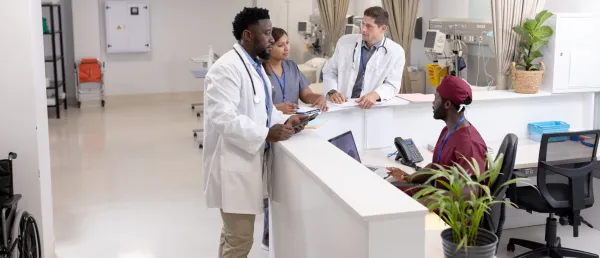IIT Indore Develops New Compounds to Combat Drug-Resistant Tuberculosis

The new compounds from IIT Indore could help reduce long-term healthcare costs and support indigenous drug development.
In a significant development, the Indian Institute of Technology (IIT) Indore has developed new compounds that could be crucial in the fight against drug-resistant tuberculosis (TB), a pressing global health issue.
Researchers led by Prof Venkatesh Chelvam from the Department of Chemistry and Prof Avinash Sonawane from the Department of Biosciences and Biomedical Engineering have created over 150 new antibacterial compounds targeting TB.
These compounds belong to the pyridine ring fused heterocyclic family, including pyrrollopyridines and indolopyridines.
Rising Threat of TB
Tuberculosis, caused by the bacteria Mycobacterium tuberculosis (Mtb), is a leading cause of death worldwide, claiming about 1.5 million lives annually.
The emergence of multidrug-resistant (MDR) and extremely drug-resistant (XDR) TB strains has made existing treatments less effective.
According to the World Health Organization (WHO), there were approximately 480,000 new MDR-TB cases and an additional 100,000 cases of rifampicin-resistant TB (RR-TB) globally, with half occurring in China and India.
Current treatments for TB require six to nine months of antibiotics, but MDR and XDR-TB cases may require several months to years of treatment with toxic drugs, often leading to high failure and mortality rates.
One of the challenges in treating TB is that the bacteria can form protective biofilms, increasing drug tolerance and complicating treatment.
The IIT Indore team has focused on addressing this issue by targeting mycolic acid (MA), a critical component of the bacteria's protective layer. The researchers' new compounds inhibit MA formation by binding to polyketide synthetase 13 (Pks 13), an enzyme involved in MA synthesis, leading to the death of the TB bacteria.
India, which accounts for nearly half of the world’s TB cases, spends substantial amounts on subsidized anti-TB drugs. The new compounds from IIT Indore could help reduce long-term healthcare costs and support indigenous drug development.
Reportedly, these compounds have shown promising results in bacterial cultures, proving effective at low concentrations without harming immune cells such as macrophages. They have also been effective against TB bacteria isolated from patients, including drug-resistant strains.
Currently, the most potent of these compounds is being tested in small animals, with the aim of improving therapies for MDR and XDR-TB.
The research team’s method for developing these compounds has also been granted patents in India and the USA for treating various other diseases.
Stay tuned for more such updates on Digital Health News





























